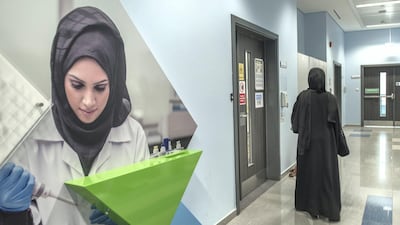If Asia represents the future of the world, then the UAE in so many ways symbolises the best that the future has to offer. A vibrant hub that connects the East and the West, the UAE is a model of stability and progress and few areas of life better reflect the UAE's aspirations for the future than its educational sector. While elsewhere pedigreed universities stand exposed to the calamitous effects of political mood swings – note the impact of Brexit on British institutions – institutes of higher education and research in the UAE are reinforced with proper funding and dedicated leadership.
The upshot: the UAE's universities have leapfrogged into the ranks of the world's finest, attaining standards of excellence that have taken others decades to perfect. Take Khalifa University. Founded in 2007, it earned a place among the world's top 600 universities in the Times Higher Education's annual university rankings in 2016. The following year, it jumped 150 places to be named among the world's 350 top universities. This year, it has been awarded the 32nd spot in THE's survey of the 100 best universities in Asia. To appreciate how rapidly Khalifa University has risen through the ranks, consider that none of the universities that outrank it was founded this century; the top four were established more than a century ago; at least one was founded in the 14th century.
Of the five indices THE uses to measure a university's performance – teaching, research, citations, income and international outlook – Khalifa University has consistently improved its performance: on income, its alumni scored 84.5 out of 100; on international outlook, the university's score was 97.9. The decision by Sheikh Mohammed bin Zayed, Crown Prince of Abu Dhabi and Deputy Supreme Commander of the Armed Forced, in 2016 to merge Khalifa University with the Masdar Institute of Science and Technology and the Petroleum Institute has clearly yielded the result it was intended to. Khalifa University, as its president, Tod A Laursen, told The National, is providing a more comprehensive education in a broad range of fields as a direct result of the merger. A similar journey towards greater efficiency through mergers can also be seen in other sectors of our economy.
THE rankings feature three more UAE universities: the United Arab Emirates University, at 71; the American University of Sharjah, at 167; and the University of Sharjah, in the 201-250 band. The UAE has created not only world-class institutions of learning but also, by hosting branches of the NYU and the Sorbonne, a genuine diversity of choice in education. All of these achievements, lest we forget, are the work of less than 50 years. That ought to give us a sense of what the future holds.
Follow The National's Opinion section on Twitter

